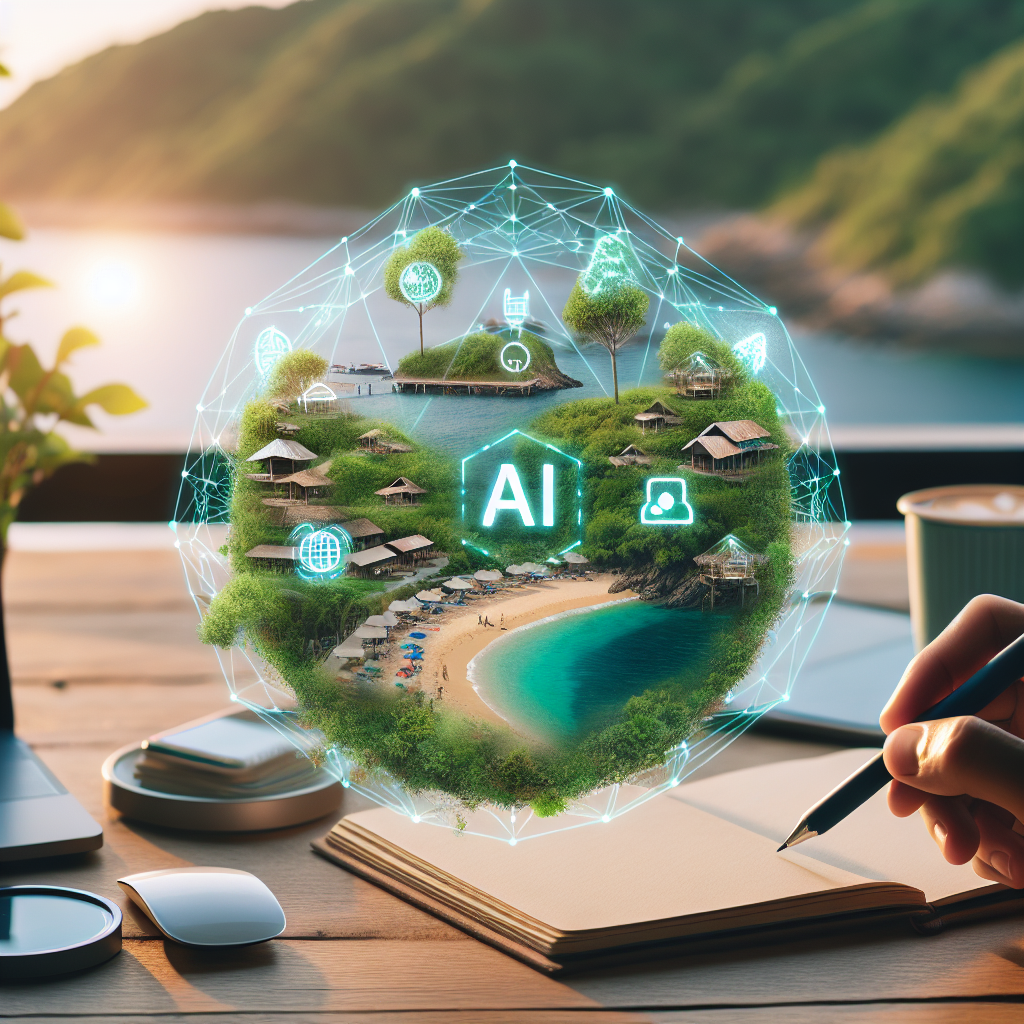Artificial Intelligence (AI) is revolutionizing industries across the globe, and the travel and tourism sector is no exception. With advancements in AI technology, companies in the travel industry are able to provide more personalized and efficient services to their customers, while also reducing their environmental impact. In this article, we will explore the various applications of AI in sustainable tourism and travel, and how it is shaping the future of the industry.
AI Applications in Sustainable Tourism and Travel Industry
1. Personalized Recommendations: AI algorithms can analyze large amounts of data to provide personalized recommendations to travelers. By analyzing a user’s preferences, past travel history, and online behavior, AI can suggest relevant destinations, accommodations, and activities that cater to the individual’s interests. This not only enhances the customer experience but also helps in promoting lesser-known destinations and reducing overtourism in popular tourist spots.
2. Dynamic Pricing: AI-powered pricing algorithms can analyze real-time data such as demand, competition, and market trends to set dynamic prices for flights, accommodations, and activities. This ensures that prices are optimized to maximize revenue while also offering competitive rates to customers. By implementing dynamic pricing, travel companies can reduce waste and overconsumption by selling unsold inventory at discounted rates.
3. Chatbots and Virtual Assistants: AI-powered chatbots and virtual assistants are becoming increasingly popular in the travel industry. These tools can provide instant customer support, answer queries, make bookings, and provide personalized recommendations. By automating routine tasks, travel companies can reduce their carbon footprint by minimizing the need for physical call centers and paper-based communication.
4. Smart Transportation: AI technology is being used to optimize transportation systems and reduce emissions in the travel industry. From route optimization for airlines and cruise ships to smart traffic management in cities, AI algorithms can help minimize fuel consumption and carbon emissions. Additionally, AI-powered autonomous vehicles are being developed to provide sustainable and efficient transportation solutions for travelers.
5. Sustainable Accommodations: AI is being used to monitor and reduce energy consumption in hotels and other accommodations. Smart sensors and energy management systems can optimize lighting, heating, and cooling based on occupancy levels and weather conditions. By reducing energy waste, hotels can lower their operational costs and minimize their environmental impact.
6. Predictive Maintenance: AI algorithms can analyze data from sensors and equipment to predict maintenance needs and prevent breakdowns in transportation and accommodation facilities. By implementing predictive maintenance, travel companies can reduce downtime, lower maintenance costs, and improve the overall safety and reliability of their services.
7. Environmental Impact Assessment: AI can be used to assess the environmental impact of tourism activities and help companies make informed decisions to minimize their carbon footprint. By analyzing data on emissions, waste generation, and resource consumption, travel companies can identify areas for improvement and implement sustainable practices to protect the environment.
FAQs
1. How can AI help reduce overtourism?
AI can help reduce overtourism by providing personalized recommendations to travelers, promoting lesser-known destinations, and optimizing pricing to spread demand across different locations. By encouraging travelers to explore off-the-beaten-path destinations, AI can help alleviate the strain on popular tourist spots and promote sustainable tourism practices.
2. How can AI improve the customer experience in the travel industry?
AI can improve the customer experience by providing personalized recommendations, instant customer support through chatbots and virtual assistants, and seamless booking processes. By analyzing customer data and preferences, AI can tailor services to meet individual needs and enhance the overall travel experience.
3. How can AI help reduce energy consumption in hotels and accommodations?
AI can help reduce energy consumption in hotels and accommodations by optimizing lighting, heating, and cooling based on occupancy levels and weather conditions. Smart sensors and energy management systems can automatically adjust settings to minimize waste and lower operational costs.
4. How can AI contribute to sustainable transportation solutions?
AI can contribute to sustainable transportation solutions by optimizing route planning, reducing fuel consumption, and developing autonomous vehicles. By leveraging AI technology, transportation companies can minimize emissions, improve efficiency, and provide environmentally friendly travel options for customers.
5. How can AI assist in environmental impact assessments for tourism activities?
AI can assist in environmental impact assessments by analyzing data on emissions, waste generation, and resource consumption to identify areas for improvement. By monitoring and evaluating the environmental impact of tourism activities, travel companies can implement sustainable practices to protect the environment and reduce their carbon footprint.

